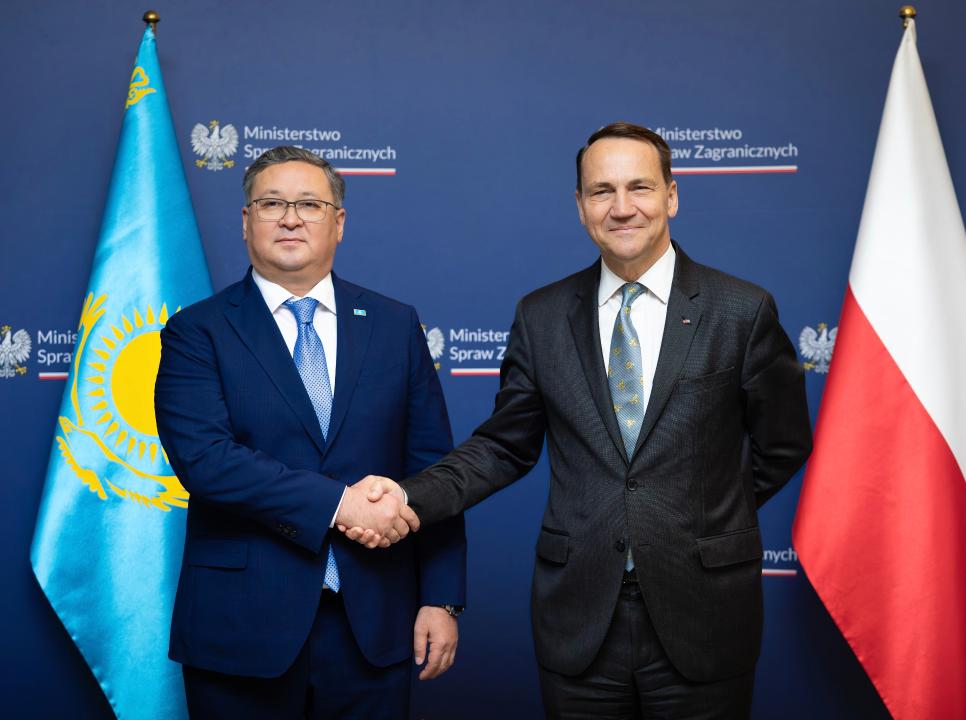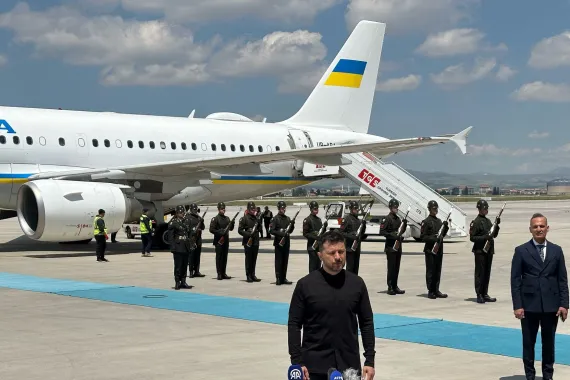Kazakhstan and Poland have reaffirmed their commitment to strengthening bilateral relations, announcing a series of new initiatives to boost political dialogue, economic cooperation, and cultural exchange during high-level meetings held in Astana on May 24.
The visit by Polish Foreign Minister Radosław Sikorski marked a significant step forward in deepening ties between the two nations. He was welcomed by Kazakh Deputy Prime Minister and Foreign Minister Murat Nurtleu, with discussions spanning a wide range of issues, from regional security to trade expansion and multilateral collaboration.
“We are ready to open a new chapter in our relationship,” Sikorski said during a joint press conference. “Poland views Kazakhstan as a strategic partner in Central Asia, and we see great potential in developing cooperation across all sectors.”
The talks focused heavily on economic cooperation, particularly in agriculture, logistics, energy, and technology. Kazakhstan expressed interest in expanding its exports of grain, oilseeds, and uranium to Poland, while Polish officials signaled readiness to boost investments in Kazakhstan’s logistics corridors and green energy infrastructure.
Both countries acknowledged the importance of leveraging their geographic positions to support Eurasian connectivity. Poland, as a key EU member on the eastern flank, and Kazakhstan, as a central hub in the Belt and Road Initiative, emphasized the strategic importance of linking Central Asia with Europe via diversified transport routes.
Foreign Minister Nurtleu highlighted Kazakhstan’s focus on modernizing its economy and diversifying trade partners, noting that Poland is one of the country’s top European trading partners. In 2023, bilateral trade reached $1.3 billion, and both sides agreed on the need to increase that figure through direct investment and simplified customs procedures.
“Kazakhstan welcomes Polish businesses and is working to create a transparent and predictable environment for foreign investors,” Nurtleu stated.
In addition to economic ties, the two sides reiterated their shared support for international law, multilateralism, and a rules-based global order. They exchanged views on key geopolitical developments, including the ongoing war in Ukraine, and stressed the importance of diplomatic solutions and regional stability.
Sikorski also met with Kazakh President Kassym-Jomart Tokayev, who emphasized the value Kazakhstan places on developing balanced foreign relations with both Western and Eastern partners. Tokayev expressed appreciation for Poland’s active engagement in Central Asia and invited Polish businesses to participate in major national development programs.
On the cultural front, both governments committed to enhancing educational and cultural exchanges, with plans to establish new scholarship opportunities, language programs, and joint academic initiatives. Kazakh and Polish universities are expected to increase cooperation through research partnerships and student mobility programs.
The meeting also included the signing of several memoranda of understanding (MoUs) aimed at facilitating closer cooperation between government agencies, private enterprises, and chambers of commerce. Details of the agreements were not fully disclosed but reportedly include measures to strengthen trade missions, business forums, and sector-specific working groups.
In a symbolic gesture of goodwill, the Polish delegation laid a wreath at Kazakhstan’s Monument of Independence and toured the capital’s cultural institutions, reaffirming the shared historical bonds and mutual respect between the two countries.
Analysts see the meeting as part of Kazakhstan’s broader effort to diversify its foreign partnerships amid shifting global power dynamics. For Poland, deepening ties with Central Asia aligns with its strategic push to enhance energy security, access emerging markets, and play a more active role in Eurasian affairs.
As both countries prepare to celebrate 32 years of diplomatic relations later this year, the outcomes of the Astana meetings signal a new phase of cooperation grounded in mutual economic interest, regional stability, and long-term partnership.
Source: The Astana Times



